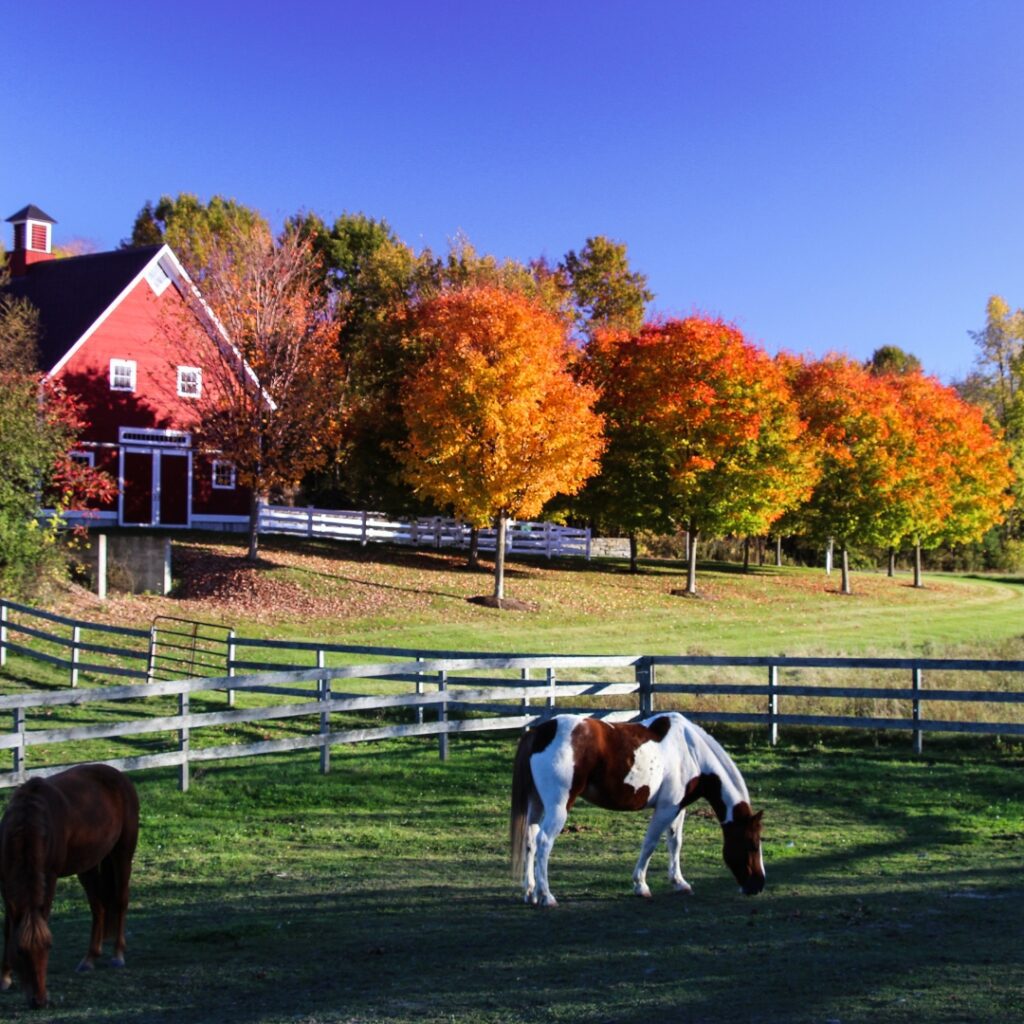
A topic that goes hand in hand with equine nutrition management, is the management of pasture and hay fields. As most horse owners know, it takes a team to ensure our horses are thriving. For this week’s blog post I had the pleasure of interviewing Michelle Durnin of Prosperity Ag Consulting on her top tips for horse owners!
Michelle grew up on a cash crop farm outside of Hamilton, Ontario. She completed a bachelor’s degree in agriculture at the University of Guelph and earned her Certified Crop Advisor designation. She has extensive experience in ag retail, precision agriculture and independent crop consulting. She grew up with horses so has always taken an interest in pasture management. Michelle believes that there is a huge opportunity for nutritionists and agronomists to work more closely to maximize feed acres.
Many horse owners in Ontario deal with limited pasture and have to carefully manage their acres to reduce overgrazing. Michelle and I discussed her top practical recommendations for Ontario horse owners to improve pasture health and ensure they are getting a great yield off of their hay fields.
Fertilizer
Michelle mentioned fertilizer as being her top tip for horse owners. She sees this area as the biggest thing that gets missed. With both pasture and hay, we are taking off the above ground biomass and therefore the fertility is being taken out of the soil. With pastures she recommends fertilizing at the end of April or early May with a fertilizer blend that will provide adequate nitrogen.
Nitrogen will help your pastures look lusher and give you a good return on investment. Two other key nutrients are phosphorus and potassium. Michelle mentioned that you will not see as much visual difference with these but if you aren’t applying them to your pastures your yield will suffer.
When planning your fertilizer application, she recommends trying to line it up with a rain event occurring a few days after application. This will help the fertilizer go into the soil. This early fertilizer is important as May and June are the months that we see the most growth, so having the proper nutrients applied to the soil is crucial. A tip that Michelle mentioned for horse owners dealing with small pastures is to fertilize again at the end of June or start of July. She noted that this will encourage more growth.
Soil Testing
In this year’s hay analyses that I have collected, there have been some wonky mineral levels and ratios in a handful of them. Michelle mentioned that this can be related to field management. The example she used is potassium, if your soils are high or low in a certain nutrient, it can translate into the hay. This is where soil testing becomes important.
Soil testing is something you can do yourself by collecting 10-12 soil cores, however, Michelle recommends hiring someone to take the sample for you if you do not have the correct equipment. Your local agri-mart or co-op should be able to assist you in finding someone local to your area. Once the soil sample has been collected and sent to the lab, the results will provide a great starting point for knowing which nutrients are required in the fertilizer.
Overseeding
Another issue that I commonly see at client’s farms is overgrazed areas, and divots due to high traction on the pasture as not everyone has a sacrifice paddock or acres and acres of pasture they can rotate between. Michelle’s recommendation for these situations as well as if you have a relatively new pasture stand you are grazing horses on is to begin overseeding.
Overseeding is when you seed during March or early April (also referred to as frost seeding). This can spruce up pastures as the freeze/thaw action can help those seeds to have higher soil contact and germinate. A seed mix that Michelle recommends is a white clover, blue grass, and meadow fescue mix. For those horse owners dealing with small pastures this is a great management tactic to improve the health of your pastures.
Weed Control
A final consideration for horse owners managing pasture and hay fields is weed control. Michelle first discussed chemical management for weeds but noted that it is dependent on the size of pastures, whether the horses can be removed from that field for the safety window, and if equipment can fit through all the gates. Additionally, many horse owners are not comfortable with this practice.
Aside from the chemical management, her top recommendation to control weeds is to have a healthy pasture so that you are not leaving any room for weed seeds to germinate. In addition to having healthy pasture, mowing the field regularly will prevent weeds from going to seed.
To conclude, if you are concerned about your pasture yield, or have tested you hay and have concerns around various mineral aspects, consider reaching out to an agronomist that is able to test your soil and recommend optimal fertilizer mixes and management practices. Michelle is based in Huron County; however, she offers remote consultations as well. Reach out to her if you are in need of fertilizer recommendations!
By: Madeline Boast, MSc. Equine Nutrition